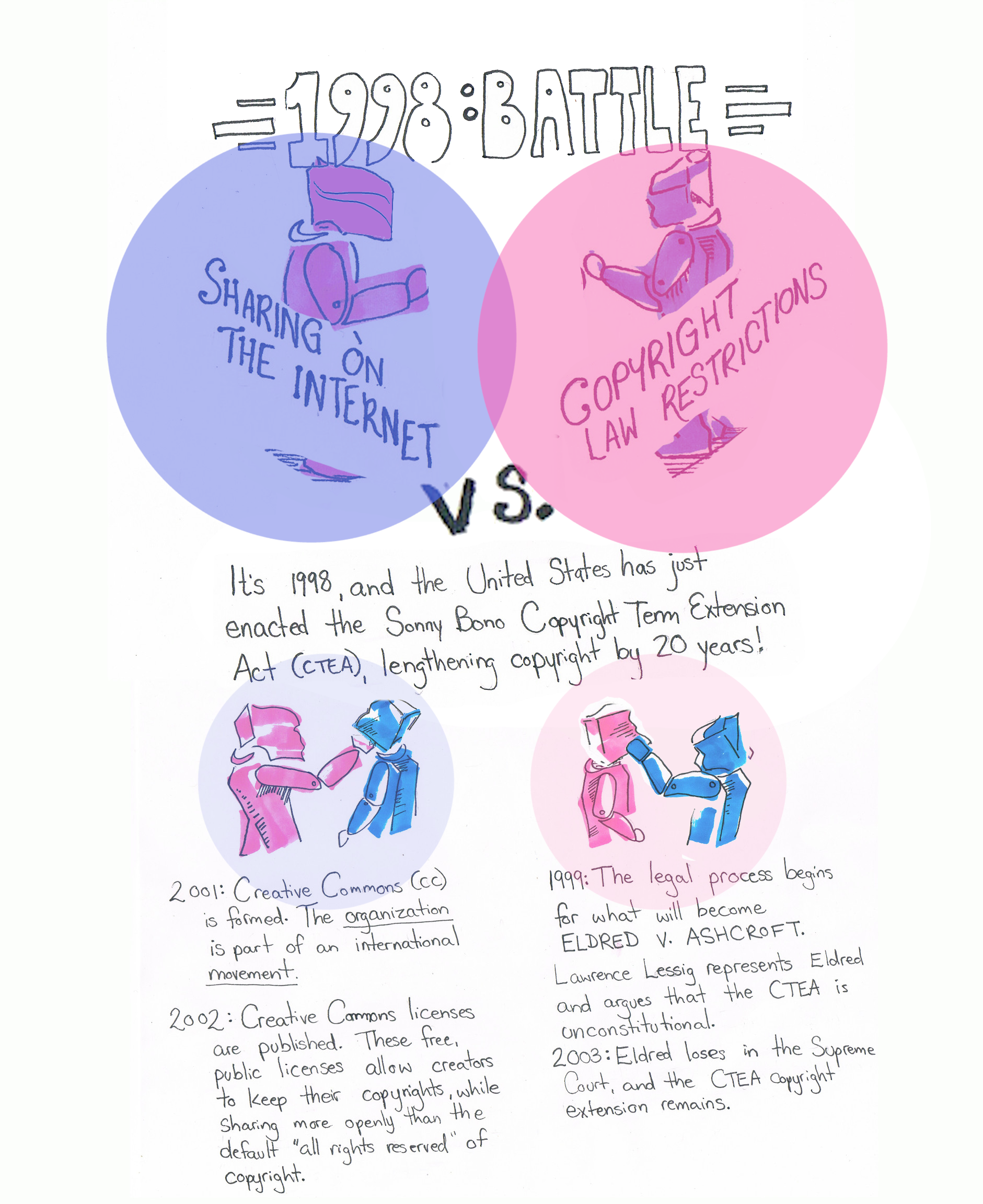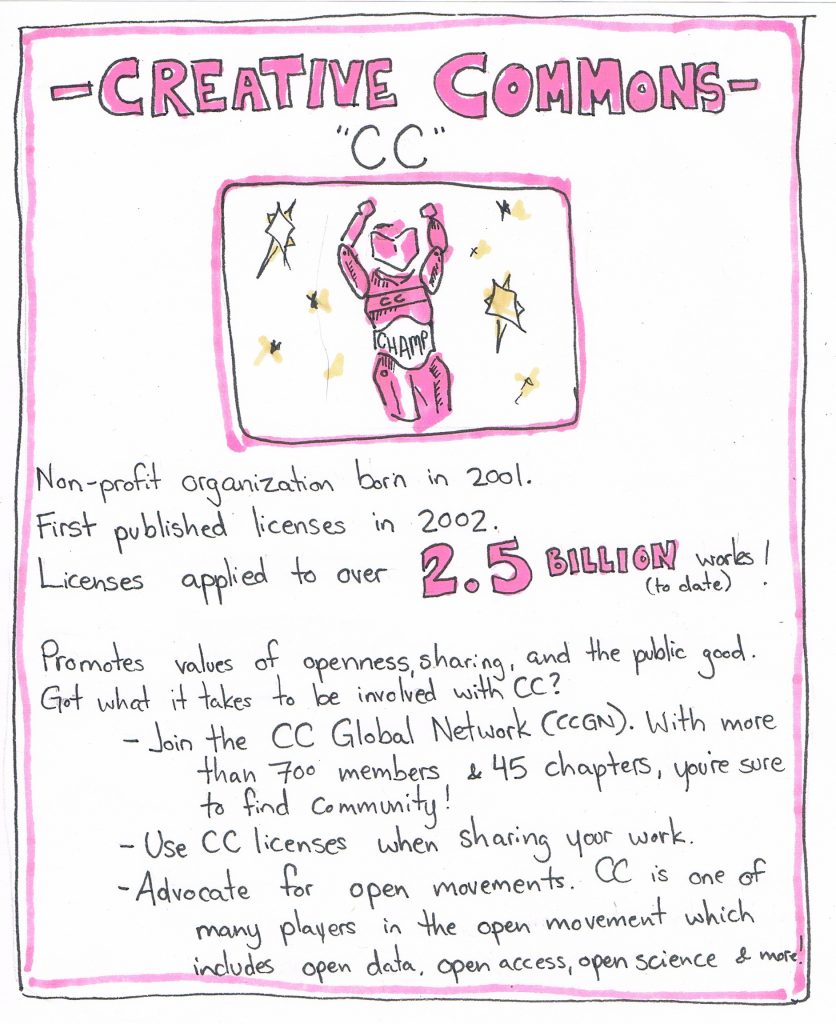4 History of Creative Commons
In the section about Canadian Copyright we learned that in Canada the copyright term lasts for the life of the author plus 70 years after their death. This is a relatively recent extension, up from 50 years, which came into effect on December 30, 2022. This term extension was agreed to in the Canada-United States-Mexico Agreement trade treaty, and the new term of 70 years was introduced to match the current term in the United States.
However, the United States also previously had a shorter copyright term, but through industry lobbying it was extended to 70 years in 1998 via the Sonny Bono Copyright Term Extension Act (CTEA). This was also the catalyst for the creation of the Creative Commons organization and Creative Commons (CC) licenses.
Comic Version


The comics recommend using CC licenses when sharing your work. In the next section we’ll get into what those licenses look like and how to use them.
Text Version of the Comic
First Image: 1998 Battle
Image of two cartoon robots in coloured spotlights. Text layered on top of robots reads “Sharing on the Internet vs. Copyright law restrictions”.
It’s 1998, and the United States has just enacted the Sonny Bono Copyright Term Extension Act (CTEA), lengthening copyright by 20 years!
Image of the “sharing on the internet” robot hitting the “copyright law restrictions” robot.
2001: Creative Commons (CC) is formed. The organization is part of an international movement.
2022: Creative Commons licenses are published. These free, public licenses allow creators to keep their copyrights, while sharing more openly than the default “all rights reserved” of copyright.
Image of the “copyright law restrictions” robot hitting the “sharing on the internet” robot.
1999: The legal process begins for what will become ELDRED V. ASHCROFT. Lawrence Lessig represents Eldred and argues that the CTEA is unconstitutional.
2003: Eldred loses in the Supreme Court, and the CTEA copyright extension remains.
Second Image: Creative Commons “CC” Trading Card
Image of cartoon robot with a championship belt and “CC” written on it’s chest.
Non-profit organization born in 2001.
First published licenses in 2002.
Licenses applied to over 2.5 billion works (to date)!
Promotes values of openness, sharing and the public good
Got what it takes to be involved with CC?
- Join the CC Global Network (CCGN). With more than 700 members & 45 chapters, you’re sure to find community!
- Use CC licenses when sharing your work.
- Advocate for open movements. CC is one of many players in the open movement which includes open data, open access, open science & more!

